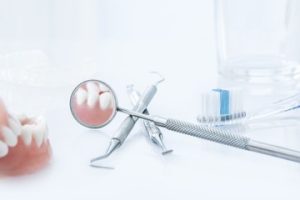Maintaining a healthy smile isn’t just about looks—it plays a crucial role in your overall well-being. Good dental care habits help prevent tooth decay, gum disease, and bad breath, while also supporting your body’s general health. A strong set of teeth allows you to eat comfortably, speak clearly, and smile with confidence.
Whether you’re starting from scratch or looking to improve your existing routine, the following dental care tips can help you achieve a healthier smile and stronger teeth.

Brush Properly and Regularly
Brushing your teeth is the foundation of oral hygiene. It’s not just how often you brush, but how effectively you do it.
- Twice a day: Brush at least two times a day—once in the morning and again before bed.
- Use proper technique: Hold your brush at a 45-degree angle to your gums and use gentle circular motions. Avoid brushing too hard, which can wear down enamel and irritate your gums.
- Don’t rush: Spend a full two minutes brushing. Divide your mouth into quadrants and give each equal time.
- Brush your tongue: Bacteria can accumulate on your tongue, leading to bad breath and other issues. Give it a gentle scrub during your routine.
Floss Daily to Clean Between Teeth
Brushing cleans the surfaces of your teeth, but flossing is essential for cleaning the tight spaces between them where food and plaque can get trapped.
- Be gentle: Use a clean section of floss for each tooth and slide it gently between teeth, curving it around the base to reach just under the gumline.
- Don’t skip it: Flossing once a day helps prevent gum disease, cavities between teeth, and plaque buildup.
If traditional floss is difficult to use, consider alternative tools such as dental picks or water flossers to make the process more convenient.
Rinse with Mouthwash for Extra Protection
Mouthwash can enhance your dental care routine by reaching areas that brushing and flossing may miss.
- Use alcohol-free options: These are less likely to irritate your mouth, especially for those with sensitive gums.
- Choose one with fluoride: Fluoride strengthens enamel and helps prevent decay.
- Rinse regularly: Use mouthwash once or twice a day, especially after brushing and flossing.
While mouthwash isn’t a substitute for brushing or flossing, it adds another layer of defense against bacteria.
Eat a Tooth-Friendly Diet
What you eat affects your dental health as much as how you clean your teeth. A balanced, nutrient-rich diet supports strong teeth and gums.
- Calcium-rich foods: Dairy, leafy greens, and nuts help strengthen teeth.
- Phosphorus sources: Fish, eggs, and beans support enamel health.
- Crunchy fruits and vegetables: Apples, carrots, and celery naturally help clean teeth and stimulate gums.
- Limit sugar and acid: Sugary snacks and acidic drinks can erode enamel and promote decay. Drink water after consuming them to help neutralize acids.
Staying hydrated also supports saliva production, which naturally cleanses the mouth and maintains a healthy pH balance.
Avoid Harmful Habits
Certain habits can significantly damage your teeth and gums over time.
- Don’t use your teeth as tools: Avoid using them to open packages, cut tape, or bite hard objects.
- Limit smoking or tobacco use: These products increase the risk of gum disease, tooth loss, and oral cancer.
- Be cautious with hard foods: Ice cubes, hard candies, and popcorn kernels can crack or chip your teeth.
- Watch out for teeth grinding: If you grind your teeth at night, consider using a mouthguard to prevent wear and tear.
Being mindful of these habits helps preserve your teeth’s structure and appearance.
Visit Your Dentist Regularly
Professional dental checkups are vital, even if you practice good hygiene at home.
- Twice a year: Most dental professionals recommend a checkup and cleaning every six months.
- Catch problems early: Regular visits help identify issues like cavities, gum disease, or bite misalignment before they become serious.
- Deep cleaning: Professional tools remove hardened plaque (tartar) that brushing and flossing alone can’t reach.
Routine visits not only help maintain your oral health but also support early detection of other health conditions.
Protect Your Teeth During Sports
If you participate in contact sports or high-impact activities, wearing a mouthguard can prevent chipped, broken, or knocked-out teeth.
- Custom or over-the-counter: Choose a mouthguard that fits well and doesn’t interfere with breathing.
- Replace when worn out: Over time, mouthguards can become less effective and should be replaced when they show signs of wear.
Protecting your teeth during physical activity helps avoid painful and costly dental injuries.
Be Mindful of Whitening Products
Teeth whitening can enhance your smile, but overuse or improper application may damage your enamel or irritate your gums.
- Follow instructions carefully: Whether using strips, gels, or trays, don’t exceed the recommended use.
- Avoid abrasive products: Some whitening toothpastes may be too harsh for daily use and can wear down enamel over time.
If you’re interested in long-term whitening, consult with a dental professional to ensure it’s safe and effective for your teeth.
Caring for your teeth isn’t just a cosmetic choice—it’s a vital part of your overall health. By following these dental care tips, you can enjoy a brighter smile, stronger teeth, and greater confidence every day. With the right routine, a balanced diet, and regular professional care, maintaining excellent oral health is within everyone’s reach.
Start today with small, consistent steps, and over time you’ll build habits that lead to a lifetime of healthy smiles.